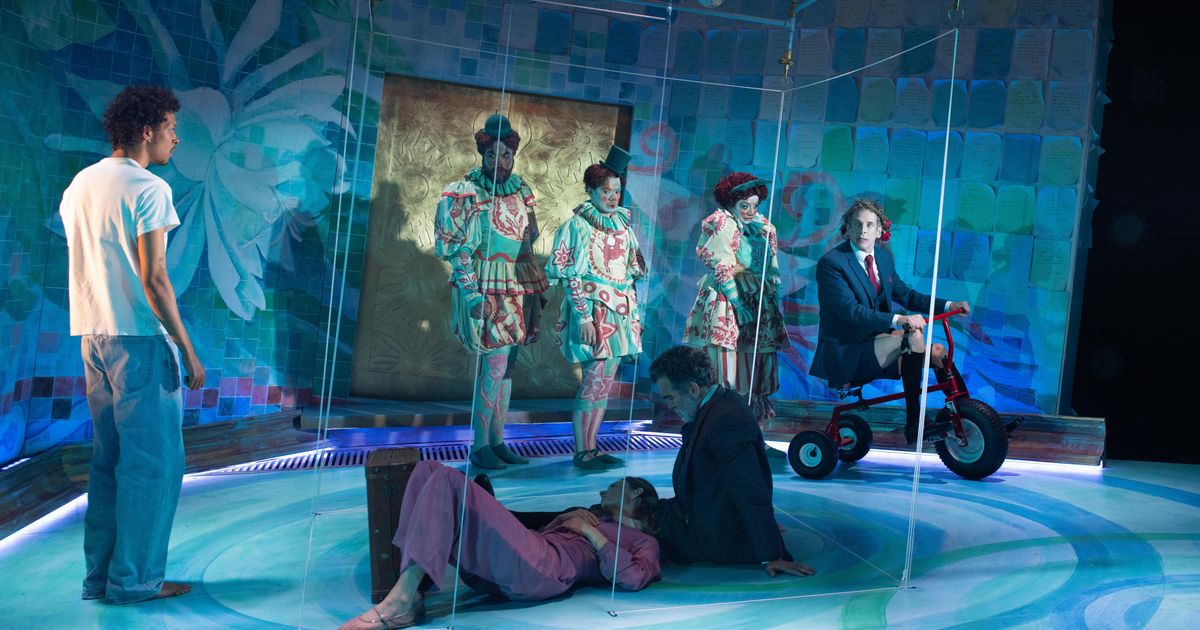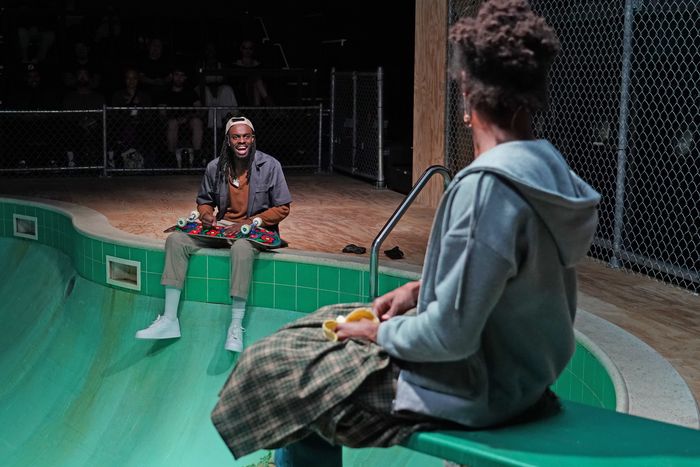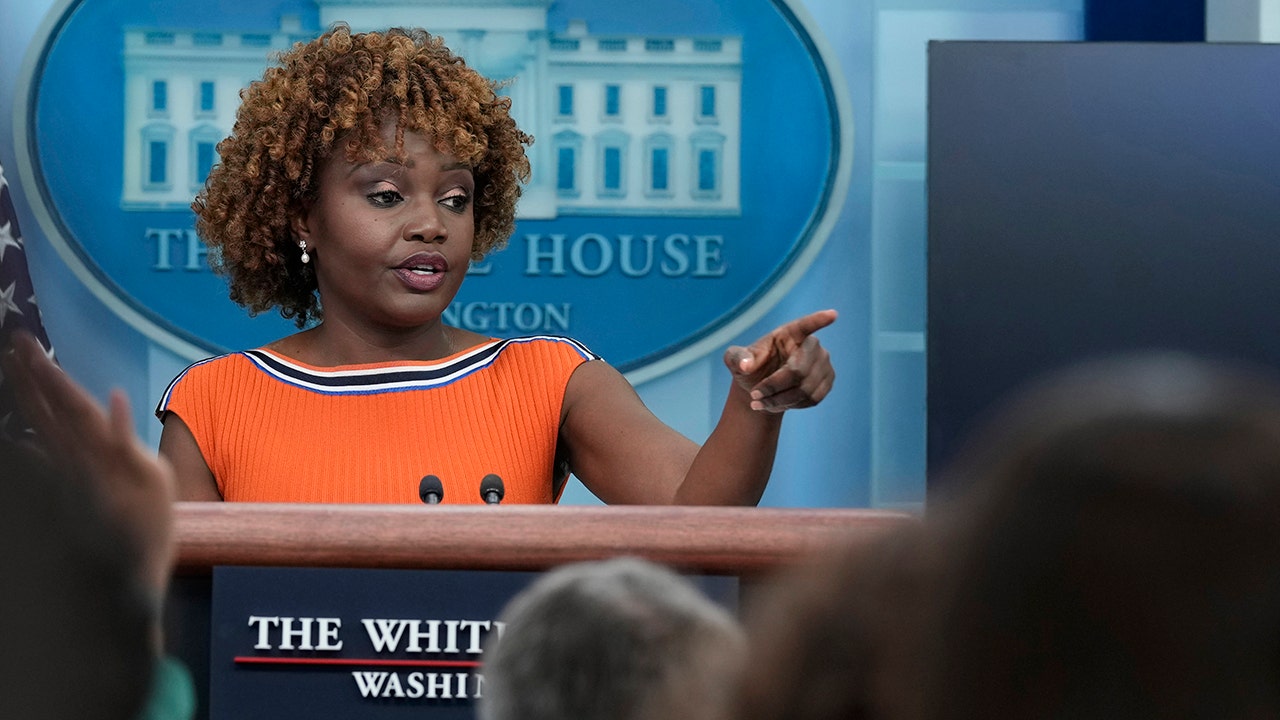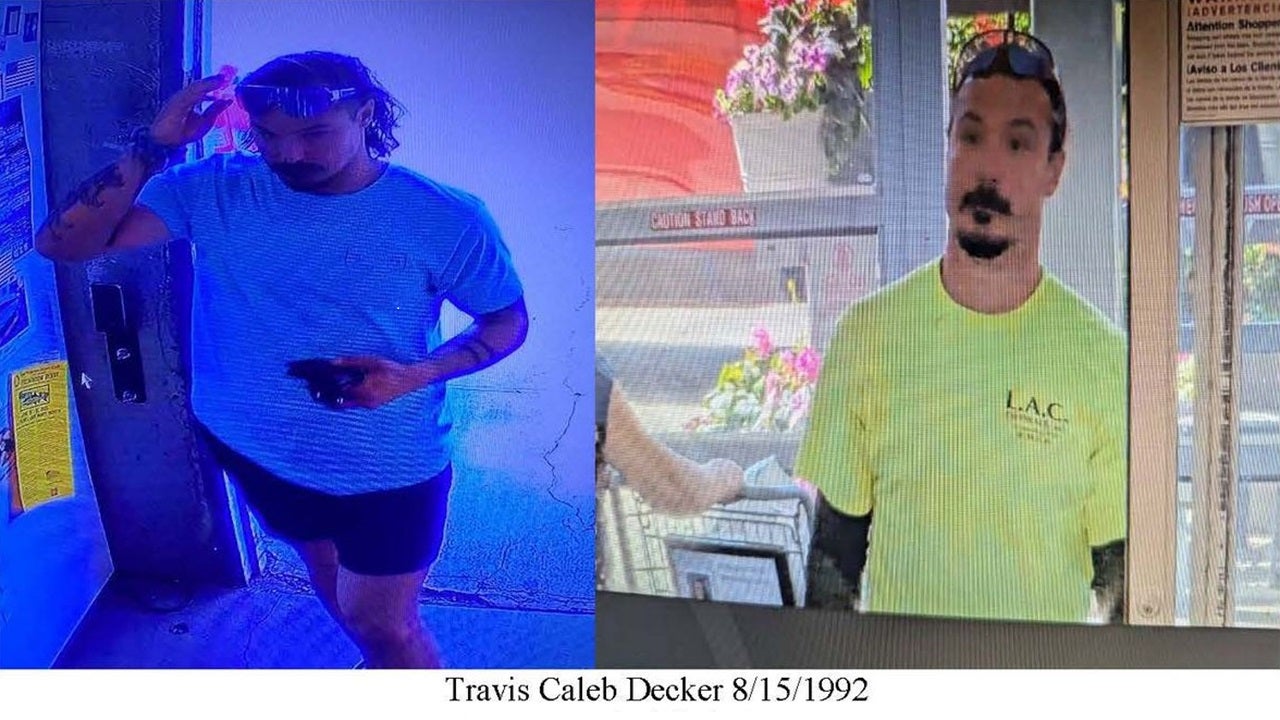From Eurydice, at the Signature.
Photo: Brad Holley
In these days when summer’s struggling to break out of its cloudy end-of-May shell, the dead seem awfully close to us. Maybe it’s worth pausing and listening closely to what they have to say. Such is happening at the Signature Theatre, where Les Waters is carefully and straightforwardly reviving Sarah Ruhl’s Eurydice, a play about journeying to the underworld. Though reviving is a somewhat odd word here, considering Ruhl’s gently witty drama hasn’t been dead for a moment since its premiere in 2003. It’s traveled the world over, and Ruhl worked on the libretto of the Met’s 2021 operatic adaptation. But with Waters’s hand guiding you, it’s worth pressing your ear to the poetry of Ruhl’s work all over again. The dead, as she puts it in one of Eurydice’s most memorable lines, speak so softly “it’s like the pores in your face opened up and talked.”
A phrase like that needs to be delivered with a certain frankness, lest it bend toward something too cute. Waters’s long collaboration with Ruhl includes directing Eurydice at the Berkeley Rep in 2004 and its Off Broadway debut in 2007, and he knows the ins and outs of her language, where to get the actors to emphasize and where to let her words speak for themselves. Waters has worked with Maya Hawke, the latest Stranger Things star who delivers onstage in New York, to craft a woman who daydreams but isn’t totally spacey. There’s a rigor to her character’s language, even when she is idly describing her philosophy of hats. Hawke’s not overeager to please, as some screen actors can be on the stage, and comfortable enough to be particular and austere (there is also, in this play that’s so much about fathers and daughters, the metatextual element of seeing a famous daughter). Hawke applies an undercurrent of regret to her performance, and it comes out early and sustains throughout the show, like a low held note on a viola. As soon as she marries her lover, the musician Orpheus, she regrets she doesn’t have more interesting people at her wedding.
Orpheus is typically the center of this story, and you can find tenor-in-a-bandana iterations of him across midtown from Hadestown to Moulin Rouge!. The reliable Caleb Eberhardt (recently bespectacled and angsty in An Enemy of the People) plays the star musician as if he’s made entirely of limbs, gangly and resonating to a sound the rest of us can’t hear. Though you do understand the disjunction between him and Eurydice: He’s forcefully unmetaphorical and certain in a way that confuses his love. “I didn’t know an argument should be interesting. I thought it should be right or wrong,” he says. The ominous force of that four-syllable word interesting gains each time Ruhl has a character repeat it. Eurydice, next, is lured away from her own wedding party, which has fewer “interesting” people than she had hoped for, by A Nasty Interesting Man (T. Rider Smith, skeletal in the way of a Charles Addams cartoon) and then takes one interesting journey down to the underworld after he brandishes a letter from her dead father in front of her.
The emotional clarity in Eurydice comes through in the pained reunion between Ruhl’s hero and her father. How could it not when Brian d’Arcy James is playing him? James is often called upon for a dose of stoic winsomeness, and here he also infuses humor into his performance as a shade, doing a little soft-shoe along to the music at his daughter’s wedding, though no one can see him. Eurydice arrives in the underworld without her memories, and Ruhl has her father reenact the process of teaching her language, of building her a place to live — a room constructed out of string — and of, eventually, having to lose her all of again. Eurydice, here, resists, though there’s collateral damage instead.
Within that frame, Ruhl invites set and costume designers to play. She’s written instructions for “a raining elevator” that transports characters to the underworld, which is here rendered by Scott Bradley like it’s the entrance to an abandoned Mediterranean resort, with mosaic tiling made up of the letters Eurydice’s father tried to send to her. Waters, Bradley, and costume designer Oana Botez have settled on an aesthetic like an abandoned town in a de Chirico painting, with the talking stones (Maria Elena Ramirez, Jon Norman Schneider, and David Ryan Smith) dressed as clowns that might be on the way to perform commedia dell’arte. Though elements touch on twee — I could do without Smith circling the stage in a tricycle like Jigsaw the clown, even though it’s in the script — they retain a winning homespun quality.
The familiarity of it all is crucial to the thing. Given the myth, or the number of times you might’ve seen it brought to life, you know the final turn is coming, though that never makes it any less painful. And it’s bracing when Ruhl tightens her lens and has the play become suddenly specific — those instructions Eurydice’s father recites, for instance, direct you to her own grandparents’ former home. For all its whimsy, the play centers on something hard and insoluble: that we’ll lose each other, from one generation to the next, and that we’ll always come back to thinking of the dead, and wishing we listened more.
You’re made to lean in and listen closely, too, in Bowl EP, in which two friends skateboard back and forth in the empty swimming pool constructed by Adam Rigg and Anton Volovsek within the Vineyard Theatre. (This is a co-production with the National Black Theatre in association with the New Group; it perhaps took three institutions to bear the cost.) In Nazareth Hassan’s drama, which Hassan also directs, the two teens go by the pseudonyms Kelly K Klarkson (Essence Lotus) and Quentavius the Quitter (Oghenero Gbaje) and as they skate back and forth on various psychoactive substances, they dream up names for the rap group they believe will break them out of suburbia. They flirt, too, without realizing they’re flirting. Hassan cuts between a series of moments during late nights like they’re tracks on an album, with the titles projected onto the curved concrete of the pool: “Track eight is slapping,” “track ten is skating n snorting molly.”
Oghenero Gbaje and Essence Lotus in Bowl EP.
Photo: Carol Rosegg
As in Eurydice, it soon becomes apparent we’re looking back on something that was lost — that unformed but powerful connection that’s possible in youth but can evaporate with the slightest disturbance. These two care for each other but can never admit as much explicitly. Lotus’s Kelly is more comfortable with expressing a level of queerness, unzipping a gray sweatshirt to reveal a pink crop top, whereas Gbaje’s Quentavius is more bottled up. Hassan’s early scenes have a quiet, hypnotic quality, an effect intensified by the pendulous motion of the actors’ skating back and forth. But then, Hassan unleashes what’s lurking within Quentavius — quite literally during an acid trip, a demonic embodiment of intimacy, itself played by Felicia Curry and known as “Lemon Pepper Wings,” storms onto the stage in an outfit that’s like the most menacing cosplay imaginable. The still waters of Bowl EP erupt. We hear a series of songs from Kelly and Quentavius’s rap act (the music is by Free Fool). Curry delivers a startling, and impressively long monologue that catapults the play into the future. She also has a gun.
Hassan’s drama can’t revert to the mellow theatrics of those earlier scenes after the arrival of a character like Lemon Pepper, nor does he seem interested in doing so. He also doesn’t try to contain Curry, who goes all out in her sneering, shouting, and stomping tantrum of a performance. Her arrival is shattering, and sort of makes it impossible for Bowl EP to wrap up in any reasonable way — the two kids go back to skating in a muted coda, after a bunch of fluid has been cleaned up — but the shards produced on impact are also what make the play compelling, and at times, unbearably poignant. It’s as if Hassan is applying an adult’s awareness of that youthful longing back upon those teenage characters, and making us watch as the weight of what couldn’t have happened smashes into them with the force of a hydraulic press crushing a plastic doll. Or it’s something like Orpheus looking back at Eurydice on the way out of the underworld. If you’re able to name the thing as ephemeral as intimacy, to describe it in such lucid detail, conjure it with clarity. That, surely, is a sign you no longer possess it.
Eurydice is at the Signature Theatre through June 22.
Bowl EP is at the Vineyard Theatre through June 15.













